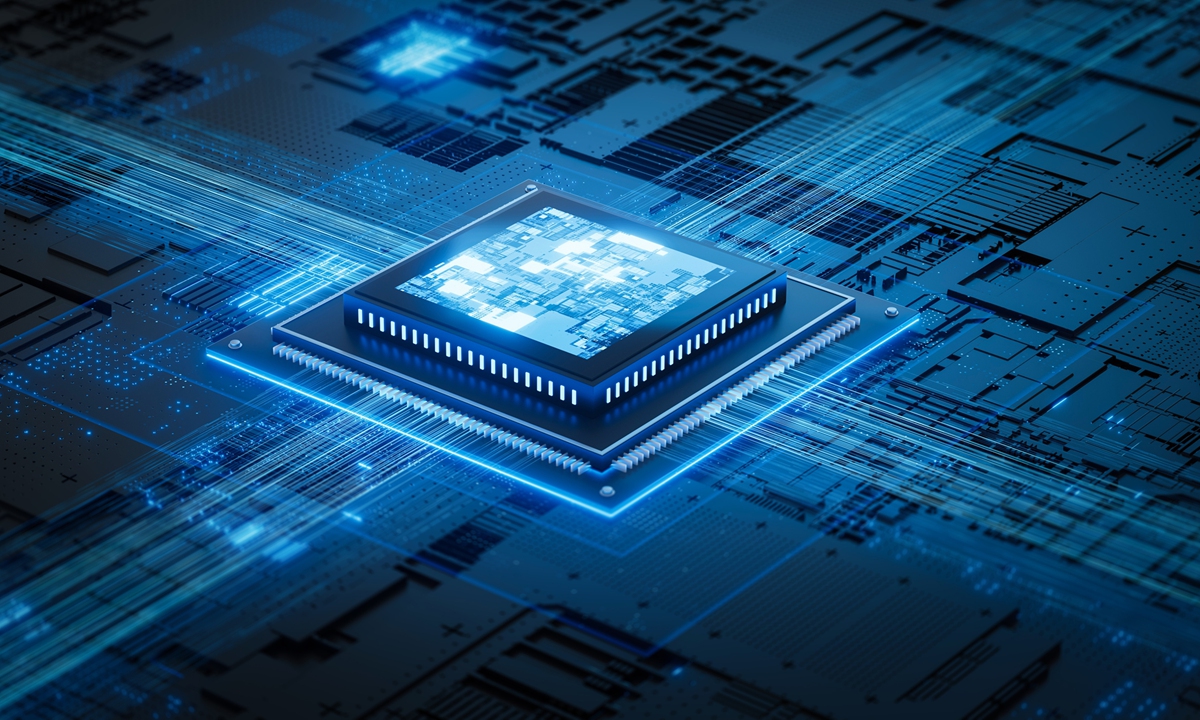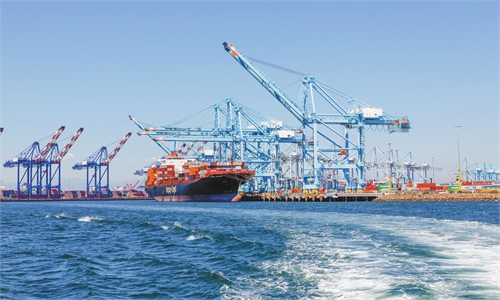
Photo: VCG
Since mid-May, the Trump administration has accelerated its strategic moves in the field of AI chips. Following the repeal of the Biden administration's Artificial Intelligence Diffusion Rule, the US swiftly rolled out a more flexible export framework by not only relaxing chip export restrictions for allies and partner countries but also ramping up "chip diplomacy" with Middle Eastern nations - exchanging advanced chip technology for hefty investments.The US initiatives are clearly aimed not only at removing obstacles to its AI industry but also at continuing to use technology to encircle and contain China. This series of actions is poised to profoundly reshape the global AI industry landscape while further escalating China-US technological competition. Meanwhile, this calculated recalibration lays bare the geopolitical considerations behind Washington's chip policy, reinforcing alliances with Europe and the Middle East in order to preserve the US strategic technological edge and maintain pressure on China.
The US president's mid-May visit to Saudi Arabia, Qatar and the UAE might have looked routine on the surface. However, in reality, it was a carefully orchestrated exercise in "chip diplomacy." During the trip, the Trump administration significantly eased AI chip export restrictions for Middle Eastern countries, announcing plans to export tens of thousands of advanced Nvidia AI chips to the UAE and Saudi Arabia. The US president also backed the development of one of the world's largest AI data centers in Abu Dhabi. This marked a major realignment in US chip strategy - aimed at pulling Middle Eastern countries closer by supplying critical technology and thereby further eroding China's technological and economic influence in the region.
Crucially, the US administration's chip gambit is also driven by domestic economic pressures. Since 2019, Washington has repeatedly tightened chip export restrictions on Chinese tech giants such as Huawei and ZTE. These measures may have temporarily hampered Chinese firms, but they also spurred China's drive for homegrown chips, sharply cutting into US companies' market share. Nvidia, for instance, saw its share of the Chinese market plunge from 95 percent to 50 percent during Biden's four-year tenure, prompting growing discontent in the US semiconductor industry.
With American chipmakers desperate for new growth markets, the Trump administration has set its sights on the Middle East as an ideal opportunity. During the visit, the US and the UAE struck a preliminary deal allowing the UAE to import up to 500,000 Nvidia AI chips each year - 100,000 of which would be earmarked for the Abu Dhabi-based AI firm G42. Meanwhile, Saudi Arabia's AI startup Humain secured 18,000 of Nvidia's latest AI chips. These export agreements not only opened new market avenues for US semiconductor firms, but also attracted massive Middle Eastern investment into American manufacturing and energy sectors. According to the White House, agreements signed during Trump's visit totalled a staggering $2 trillion.
In sum, although the Trump administration's recent adjustments to AI chip export policy may appear, on the surface, to relax certain controls, the fundamental strategy remains unchanged. Under the banner of "America First," Washington continues to wield technological controls and export restrictions to contain China's rise in technology. The Biden era's rule may be gone, but the new AI export framework put in its place still has the same core objective: to strictly block critical technologies from reaching strategic competitors like China, thereby ensuring the US maintains its dominance in the global AI arena.
However, a strategy built on technological hegemony and unilateralism is bound to have serious negative consequences for global tech cooperation and innovation. Washington's habit of invoking "national security" to justify frequent tech embargoes not only undermines America's international credibility, but also accelerates a worldwide trend of "de-Americanization" in high-tech supply chains.
In turn, other countries will be spurred to intensify their own indigenous innovation and reduce reliance on US technology. In the long run, this carrot-and-stick approach to AI chip diplomacy is unsustainable - and could ultimately backfire on the US itself.
The authors are an associate professor and a research assistant, respectively, at the School of International Relations, Nanjing University. opinion@globaltimes.com.cn


